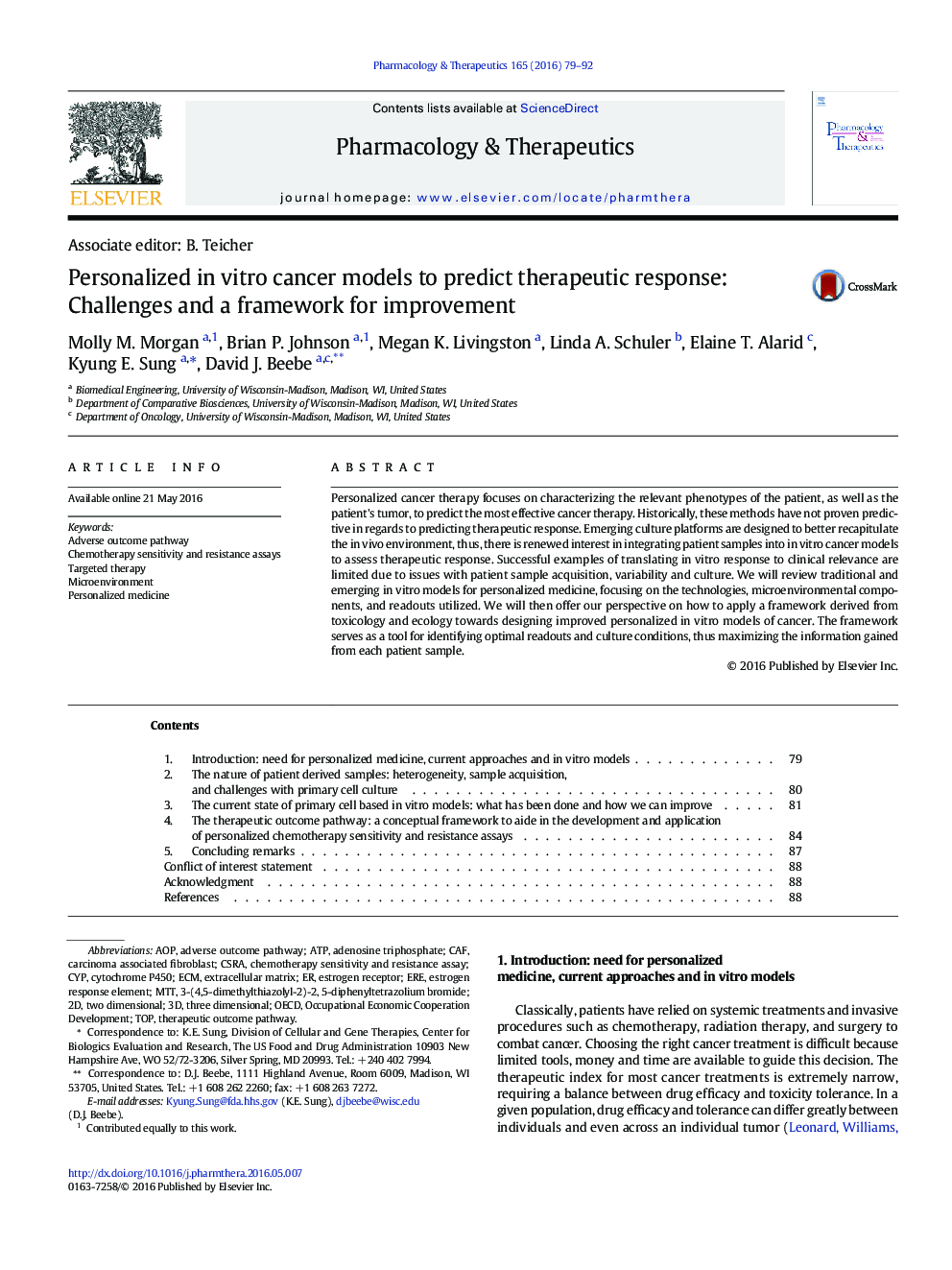| Article ID | Journal | Published Year | Pages | File Type |
|---|---|---|---|---|
| 2563051 | Pharmacology & Therapeutics | 2016 | 14 Pages |
Personalized cancer therapy focuses on characterizing the relevant phenotypes of the patient, as well as the patient's tumor, to predict the most effective cancer therapy. Historically, these methods have not proven predictive in regards to predicting therapeutic response. Emerging culture platforms are designed to better recapitulate the in vivo environment, thus, there is renewed interest in integrating patient samples into in vitro cancer models to assess therapeutic response. Successful examples of translating in vitro response to clinical relevance are limited due to issues with patient sample acquisition, variability and culture. We will review traditional and emerging in vitro models for personalized medicine, focusing on the technologies, microenvironmental components, and readouts utilized. We will then offer our perspective on how to apply a framework derived from toxicology and ecology towards designing improved personalized in vitro models of cancer. The framework serves as a tool for identifying optimal readouts and culture conditions, thus maximizing the information gained from each patient sample.
